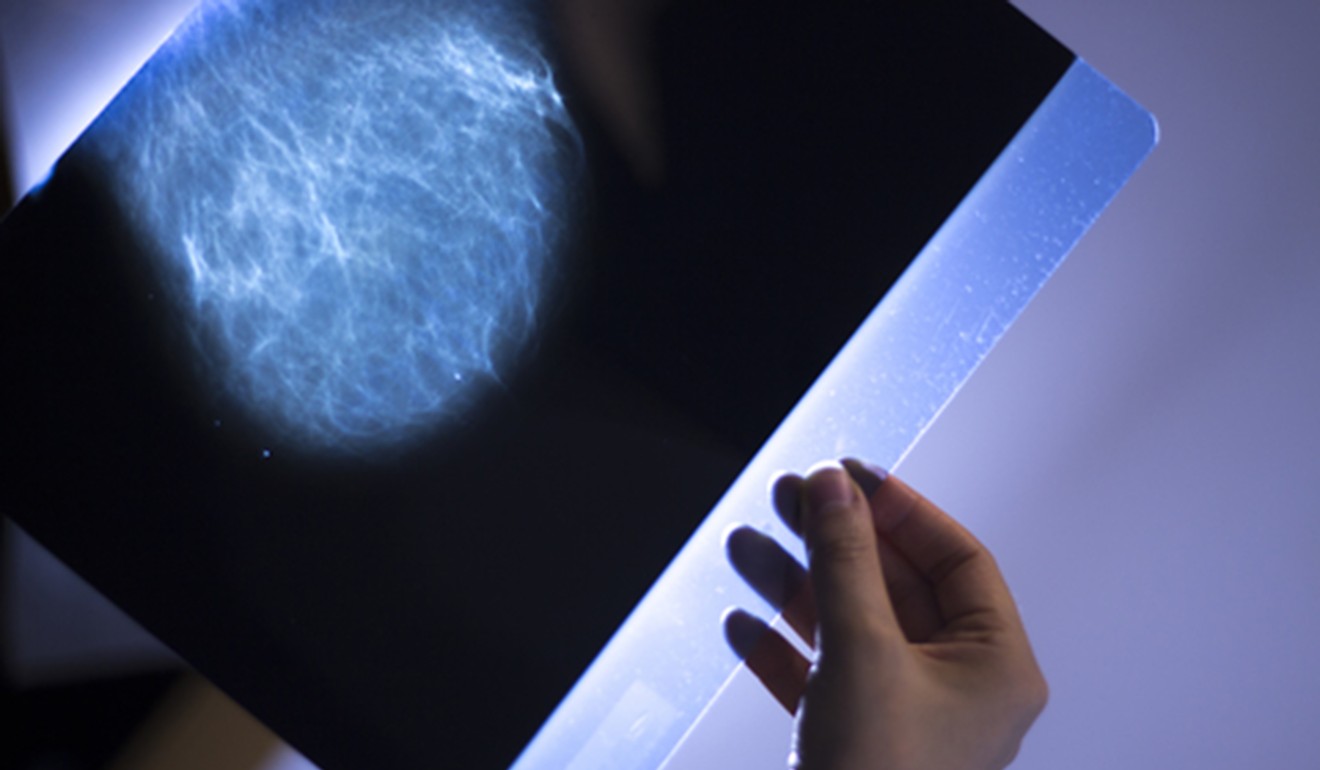
Hong Kong medical panel rejects universal breast cancer screening for women in city
Cancer Expert Working Group on Cancer Prevention and Screening cites lack of evidence on whether risks of mammograms outweigh benefits to general population
There is “insufficient evidence” that universal screening could help fight breast cancer, the most common cancer for women in Hong Kong, a government working group of doctors has concluded.
After analysing international and local studies, as well as screening practices, the group said “it was unclear whether population-based breast cancer screening did more harm than good” in women who did not show symptoms and had an average risk of the disease, which is the third leading cause of death for women in the city.
Hong Kong health officials consider sugar tax to cure city of its bad health habits
Instead, women should be aware of symptoms and seek medical attention if they occur. Women who are at high risk – such as those who have a family history of the disease – should seek advice from a doctor about when to begin annual mammograms, the panel said in the June issue of the Hong Kong Medical Journal.
A mammogram is an X-ray of the breast used to detect cancer. Some of the risks involved include exposure to low-dose radiation and the tests are not always accurate, resulting in false positive diagnosis that can lead to unnecessary surgery.
The study was released ahead of a report by University of Hong Kong doctors on a large scale study to develop a risk prediction tool for breast cancer. The HKU study, which was commissioned by the Food and Health Bureau, is expected to be completed next year.

Invasive breast cancer in women has increased by 70 per cent since 2005, according to the Hong Kong Cancer Registry, significantly higher than the overall increase of 40 per cent for all other cancers in women. In 2015, 21,082 women underwent mammograms at public hospitals and about 3,900 new cases were diagnosed across the city that year. In 2016, 702 women died of breast cancer.
Nineteen doctors are members of the Cancer Expert Working Group on Cancer Prevention and Screening, which was set up in 2002.
Could universal breast cancer screening be coming to Hong Kong? Leader Carrie Lam hints at policy change
Lead author of the article, Dr Regina Ching Cheuk-tuen, is head of the Centre for Health Protection’s surveillance and epidemiology branch.
The group said it “reaffirmed” the lack of sufficient evidence for mass screening, and that women at “moderate risk”, those with a close female relative diagnosed with cancer at 50 or older, should discuss mammograms with their doctors and be “adequately informed about the benefits and harms” for the scan every two to three years.
HKU assigned to launch study on breast cancer risk and pave way for local universal screening
Women at “high risk” – who carry the genetic mutation BRCA1/2 or have a history of radiation therapy to the chest area between ages 10 and 30 – should also seek a doctor’s advice and have mammograms every year from age 35 or 10 years before the age of when their youngest relative was diagnosed.
But in an accompanying editorial of the journal, Dr Lorraine Chow Chi-yan, wrote that screening in the modern era reduced mortality by 7.2 deaths per 100,000 people and evidence provided by the UK’s National Health Service showed a “steady decline” of deaths for women aged 50-79 as the screening programme grew from 1990 to 2000.
“It may be premature to conclude that screening for the general female population in Hong Kong is of little clinical value,” she said.
The founder of the Hong Kong Breast Cancer Foundation, Dr Polly Cheung Suk-yee, said the cancer working group “has not addressed the issue of 85 per cent of women with no apparent risk for breast cancer”.
“Primary prevention in this group of average risk women is obviously not adequate to address the rising incidence in Hong Kong,” she said.
Cheung said her foundation discovered that in more than 80 per cent of patients breast cancer was self-detected – a much higher rate than in other developed countries. Also, 42.4 per cent of patients were diagnosed with stage-two cancer, meaning the disease has progressed to the lymph nodes, a higher percentage than countries with population-based screening programmes, she said.
The foundation said the government should consider launching a pilot study to explore the possibility of implementing population-wide screening in Hong Kong.
The Department of Health said all women, regardless of their risk level, should be vigilant in their awareness of the disease and use self-examinations as a detection tool.
Women “need to be familiar with the normal look, feel and cyclical changes of their breasts, so that they can detect any irregular changes as early as possible and seek doctors’ advice immediately”.
The cancer working group will also “keep in view emerging evidence, including the outcome of the Food and Health Bureau’s commissioned HKU study”.

